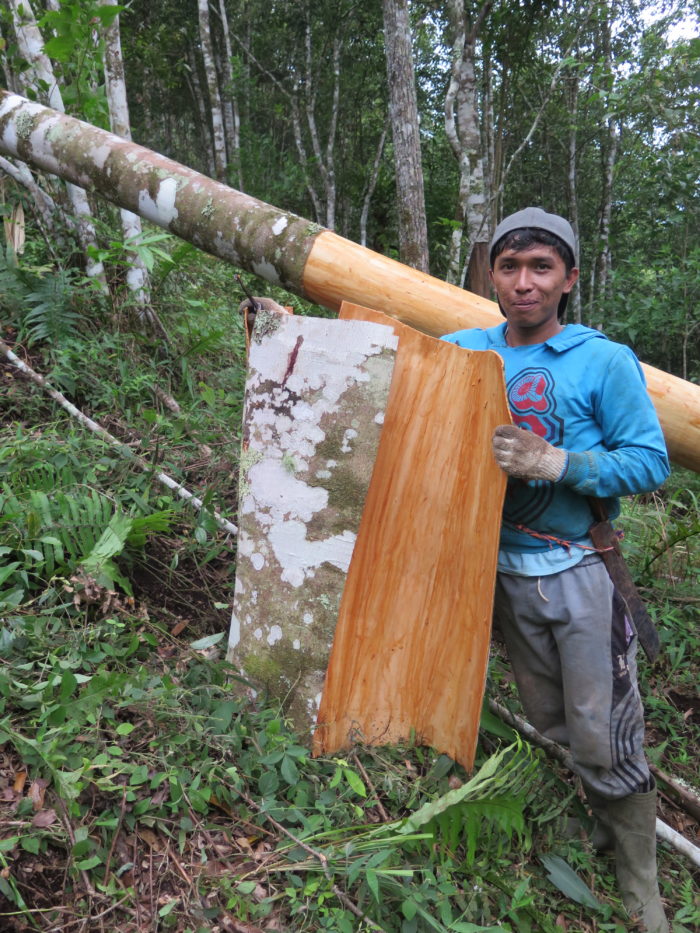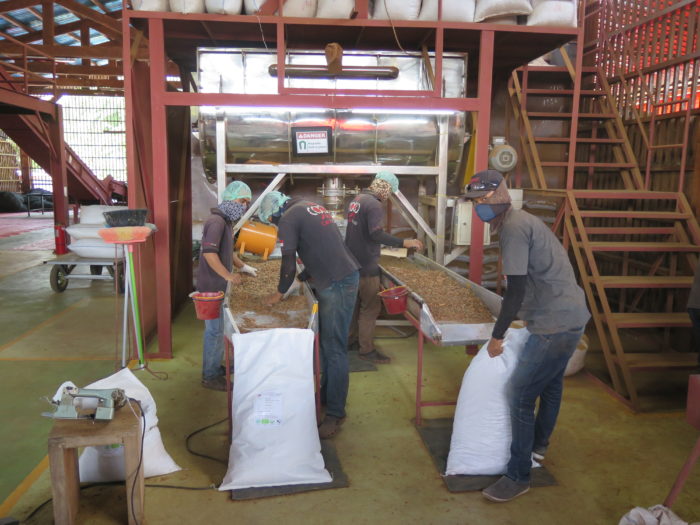Country: Indonesia (Sumatra)
Sector: Cinnamon
Investment: Acquisition of grinder and construction of plant to house the grinder
Total estimated capital expenditure: USD 650.000
Investment type: 6-year subordinated loan, 2-year grace
Amount invested by Kampani: USD 500.000
Co-investor: Not applicable
In portfolio since: June 2018
Deal sourced by: Alterfin and Rikolto (formerly known as Vredeseilanden, VECO)
The business
PT Cassia Co-op (CassiaCo-op), is a Limited Liability Company incorporated in Jakarta in 2011. CassiaCo-op sources, processes and markets cinnamon and patchouli oil.
Most of the Cinnamomum burmannii in today’s world market originates from Indonesia. Some 80% of the global production grows in one unique area on the island of Sumatra, called Kerinci (Jambi province). CassiaCo-op was the first – and remains the only – cinnamon processing and exporting company to set up in Kerinci, in the heart of the cinnamon growing area.
The investment
In May 2018, Kampani completed the transaction with CassiaCo-op, an Indonesian SME.
Thanks to Kampani’s investment, CassiaCo-op was able to acquire its own grinder. The grinder converts the crushed cinnamon into powder. From a business perspective alone this vertical integration made sense as it generates important efficiency gains, saving on both direct and indirect costs. In addition, by moving this part of the downstream added value into the heart of the production zone, CassiaCo-op has been able to further shorten the supply chain, reflecting its social mission. Currently, only a small portion of the cinnamon produced in Indonesia leaves the country in powdered form.
The social impact

Having sustainability at its core, by sourcing directly from the producers, and by doing the processing in the production zone, CassiaCo-op already has a significant, lasting, and positive impact on the area and the smallholder farmers. The shortening of the supply lines has allowed further strengthening of the company. This, in turn, has allowed it to sustain and expand the social impact it generates for smallholder farmers.
The first aspect of the social impact is giving the producers options. CassiaCo-op is transparent about the price setting, pays according to quality, and pays a premium for certified cinnamon. All too often conventional buyers take advantage of the producers, citing humidity or quality concerns. CassiaCo-op constitutes a secure market right at their doorstep. If the price is better elsewhere, they always have the option to sell to another buyer.
CassiaCo-op also provides and pays for the organic and Rainforest Alliance certification. As the only buyer to do so, it can tap into niche markets and obtain, and pay, slightly higher prices.
A final illustration of their attractive approach has to do with patchouli, CassiaCo-op’s other business line. Patchouli oil is derived from a highly fragrant bushy herb and is a key ingredient in the cosmetics industry. Since cinnamon is harvested highly irregularly (a tree tends to be 15 to 20 years old before it is harvest-ready), CassiaCo-op has sought a way to allow the farmers to generate a more regular income. That is precisely what patchouli provides, as it is an excellent intercrop when the cinnamon trees are young.
While we are convinced that the social mission is integral to the DNA of this company, the loan agreement provides for the necessary clauses, such as a mission lock, to help secure the social impact.
In 2019, CassiaCo-op has seen the near completion of the FSSC22000 certified, purpose-built facility for the grinding of cinnamon, the installation and commissioning of the grinder, and have continued work on expansion of the patchouli business line.
Partnerships at work

During the development phase of Kampani’s own business plan in 2014, Rikolto (formerly known as Vredeseilanden) included CassiaCo-op as one of 3 illustrations of possible investment opportunities, and was on our radar since the beginning. Alterfin also enjoyed this connection and it started providing trade financing in the first half of 2018. While this is not a co-investment as such, CassiaCo-op also recently attracted equity from C4D. C4D (formerly known as ICCO Investment) is one of two funds set up by ICCO. The other is called Truvalu (formerly known as ICCO Agribusiness Booster) with whom we co-invested in Burundi. In short, once again Kampani will have the company of different partner organisations, an illustration of our risk mitigation strategy at work.

